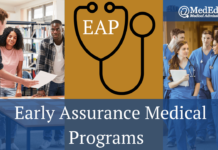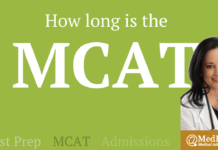- Will [insert experience type] “count” as clinical hours for my premed?
- How many clinical hours do I need to get into medical school?
- If I haven’t worked in a medical setting, do I have no shot at getting into medical school?
In the past couple of years or so, I have found that premed students and their parents alike are uber-focused on clinical experience and how much clinical experience is necessary to get into medical school. People typically define clinical experience as working directly with patients in a medical setting that includes, at a minimum, taking vital signs. Perhaps it is because of what students are hearing on TikTok, what parents are reading in Facebook groups, or what everyone is reading on Reddit. In fact, some people are “hearing” that paid clinical work is the most important factor to getting in that it should trump research experience and all other premed extracurricular experiences even for students aiming for top medical schools (this simply isn’t true).
I would encourage everyone instead of being solely focused on “clinical experience,” to think of these experiences within the framework of “patient-facing experience” instead. When deciding what experiences to pursue, focus on how the experience will improve a student’s skills, personal growth, and allow them to interact directly with patients and providers even if not caring for patients directly.
- Student A’s patient-facing experiences: Philanthropic organization patient interviewer, volunteer patient advocate, hospice volunteer, paid patient caregiver (bathing, dressing, feeding).
- Student B’s patient-facing experience: Hospital volunteer, paid medical technician (patient transport, speaking with family and patients, general non-medical support), clinic volunteer.
- Student C’s patient-facing experience: Paid clinical research, hospital volunteer, paid caregiver.
For those of you who know me, you are aware that I love data and like to substantiate, when possible, our observations with metrics. For that, we turn to the Medical School Admissions Requirements (MSAR) database. Here are a few data points from the MSAR you may find interesting.
In Vanderbilt’s most recent matriculating class, 47% of students had paid clinical work and 87% had clinical volunteer experience.
In Johns Hopkins most recent matriculating class, 52% of students had paid clinical work and 89% had clinical volunteer experience.
In Stanford’s most recent matriculating class, 38% of students had paid clinical work and 90% had clinical volunteer experience.
I think it is possible, because of what students think they need, that more applicants, in general, have paid clinical experience before applying to medical school. In other words, I am not sure medical schools are specifically seeking out applicants who have worked in clinical settings; it may be that a larger percentage of applicants now have that experience before applying. This could explain why some medical schools have seen an increasing percentage of matriculants with paid clinical experience.
Like most things in medical school admissions, there are numerous pathways to success – some of which may include hands-on clinical work and some of which may not. There are multiple pathways to a successful medical school application and the quality of one’s interactions with patients and the medical team, regardless of the specific medical setting, is what’s most valuable. We encourage students to embrace a variety of experiences that will broaden their understanding of the patient experience rather than focusing solely on clinical hours.

JESSICA FREEDMAN, M.D., a former medical school and residency admissions officer at the Icahn School of Medicine at Mount Sinai, is the founder and chair of MedEdits Medical Admissions and author of three top-selling books about the medical admissions process that you can find on Amazon.







